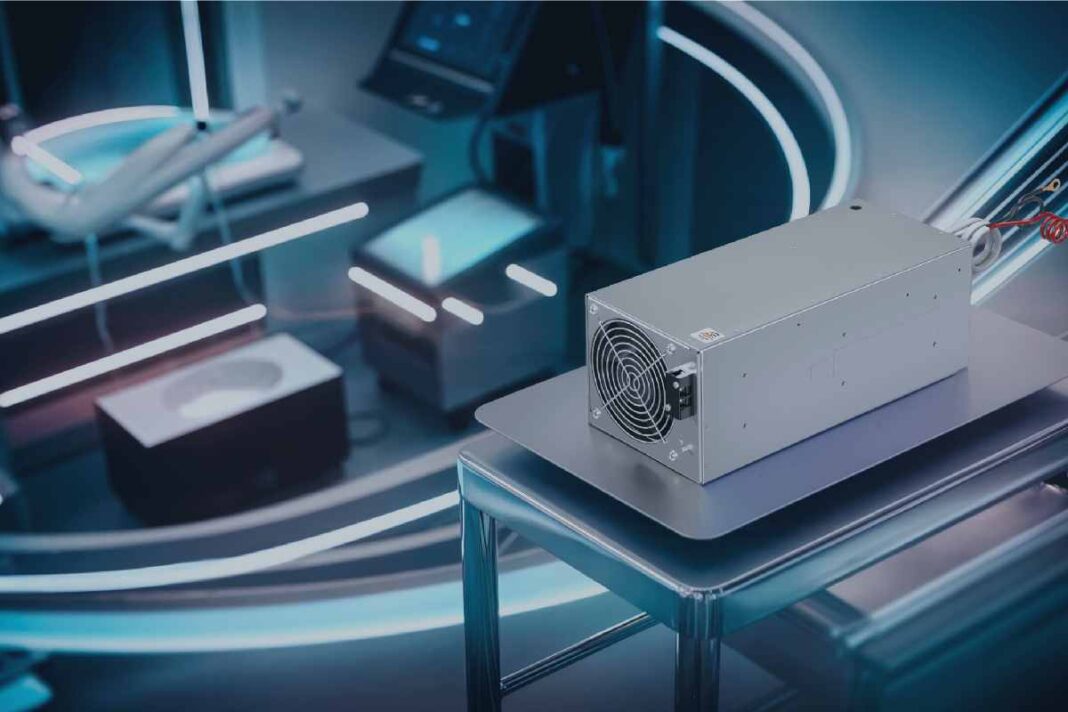Ensuring Consistent Power for Sensitive Equipment
With technology dominating business processes, uninterrupted power systems are essential, especially for sensitive machinery. Advanced equipment in healthcare, telecommunications, data centres, etc., requires a continuous and steady power flow to work efficiently. Even minor disruptions can result in significant problems, like loss of production, mechanical damage, and money loss. It is essential to have strategies and technologies that ensure critical systems have reliable energy to operate and to continue safeguarding systems and keeping the lights on.
The Growing Dependence on Sensitive Equipment
Sensitive equipment is essential to many industries, allowing for precision, efficiency, and innovation. Such devices are necessary for work that requires accuracy and consistency—from medical imaging machines to high-performance computing systems. But with their advanced functionality comes a greater sensitivity to power anomalies.
In the healthcare sector, for example, life-support machines and diagnostic equipment rely on a steady power supply to perform without interruption. Likewise, servers managing high-frequency trading or customer data in financial institutions also need consistent energy to minimise the chances of the systems crashing, causing data loss or security breaches. The growing dependence on this type of gear brings to the fore the importance of operational stability and the consistent delivery of power, which is a foundational function.
The Risks of Power Instability
While this process is essential for any manufacturing business, it can expose sensitive equipment to several risks caused by an unstable power supply. Variability in voltage levels, power surges, and blackouts could interfere with operations or destroy hardware, causing the early loss of critical systems. Such issues aren’t limited to areas with crumbling infrastructure; even in well-developed regions, power grids can fail because of natural disasters, equipment failure, or sudden spikes in demand.
The most crucial worry about a power dropout is the chance of data corruption. When the power is cut off, information processing or storage devices can lose or corrupt data. Such disruptions can be painful for businesses dependent on real-time data processing or analysis, leading to considerably higher costs. Moreover, the cost associated with repairing or replacing damaged equipment can be significant, making prevention strategies more feasible and cost-effective.
Strategies for Maintaining Power Consistency
Implementing Power Conditioning Solutions
Most businesses use power conditioning products—voltage regulators, surge signals, online UPS (Uninterruptible Power Supply) systems, etc.—to protect sensitive equipment. However, these devices play a vital role in stabilising the power supply to different systems by filtering out these irregularities and ensuring the steady flow of electricity.
UPS systems are advantageous because they give time to shut down critical systems safely or because a backup generator needs to be transitioned slowly. Online UPS systems are essential to minimising interruptions, mitigating the dangers of unforeseen power loss, and protecting sensitive equipment from damage.
Investing in Backup Power Systems
Backup generators and battery storage systems are integral to the power management strategy. These systems are a backup power source when the central grid goes down. Modern backup systems have an automatic transfer switch, which will seamlessly transition to backup power with little to no lag.
This addresses battery storage systems for their energy efficiency and reducing environmental fuss. Coupled with renewable energy sources such as solar panels, these systems provide a sustainable option to facilitate stable energy provision while minimising dependence on conventional energy grids.
Innovations in Power Management
Smart Grids for Enhanced Reliability
Smart grids are revolutionising electricity delivery and management. Smart grids employ real-time monitoring and data analytics, optimising the power delivered to demand using the least amount of disturbance. Such systems are ideal for high-tech sectors that need to provide constant power to sensitive devices because they can prioritise critical loads and respond rapidly to changing conditions in the supply chain.
Microgrids for Decentralised Power
Microgrids, which can function autonomously or in tandem with the larger grid, offer localised and dependable energy production. These systems are ideal for remote areas or environments that require high power reliability. Microgrids, for example, use renewable energy and advanced storage technologies to ensure high availability and seasonality for sensitive equipment.
The Role of IoT in Power Management
The IoT (the Internet of Things) has brought power-management precision to a new level. Connected devices and sensors in IoT-enabled systems gather data on things like power utilisation, system performance, and potential faults. By tagging the data, predictive maintenance is possible, which lowers the likelihood of unplanned breakdowns. Furthermore, IoT devices can automate the reaction to power outages to save downtime and guarantee prompt fixes.
Future-Proofing Power Systems
With technology continually improving, the need for uninterrupted power supply will only grow. Power systems must be made future-proof with advanced technologies, firm foundations, and active interventions. With industries reliant on sensitive equipment, seeking dependable power solutions goes beyond being a matter of operations—it is a strategic necessity.
With smart power management practices, businesses can increase resistance to power disruptions, optimise operational efficiency, and safeguard their investments in sensitive equipment. Providing consistent power is a technical need and a cornerstone for growth and success in an increasingly connected world.
Conclusion
Maintaining reliable power for sensitive equipment is paramount. Power stability is crucial in sectors worldwide that depend on precision systems to realise best-in-class performance. Although fluctuations in power supply can have serious consequences, new technologies, including systems for power conditioning and restoration, backup systems, and aspects of the smart grid, can help alleviate these challenges.
These technologies and advanced power management strategies can help businesses protect their sensitive equipment from potential disruptions. Reliable power solutions will only become more critical in healthcare, finance, or nuclear energy industries as the world shifts toward more complex and interdependent systems.


